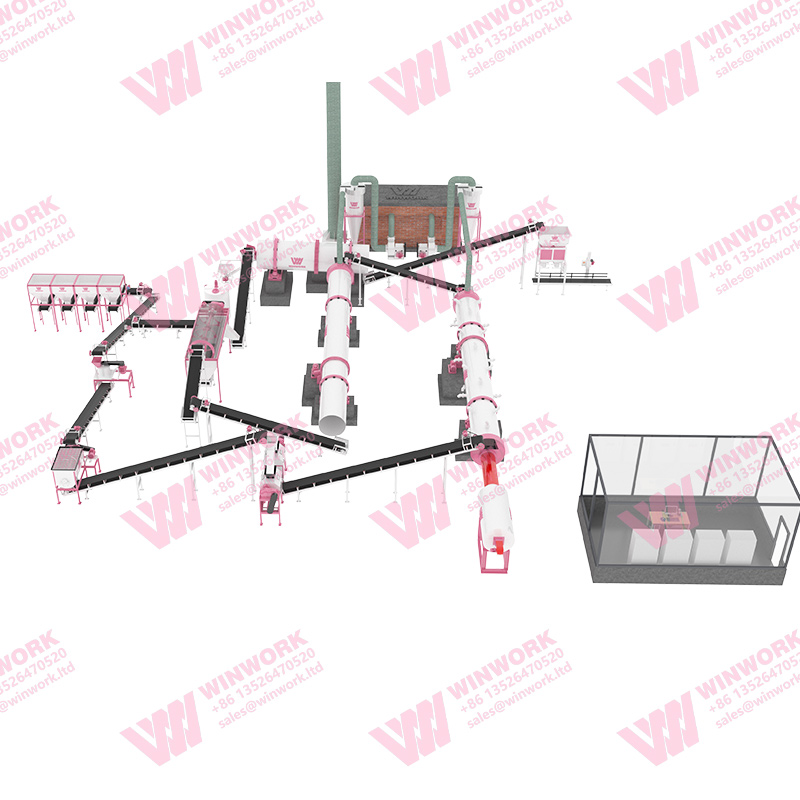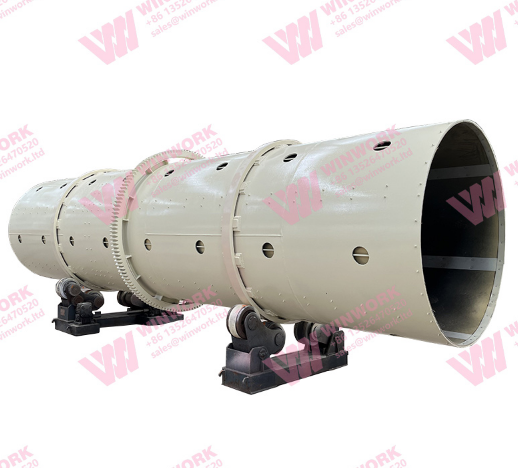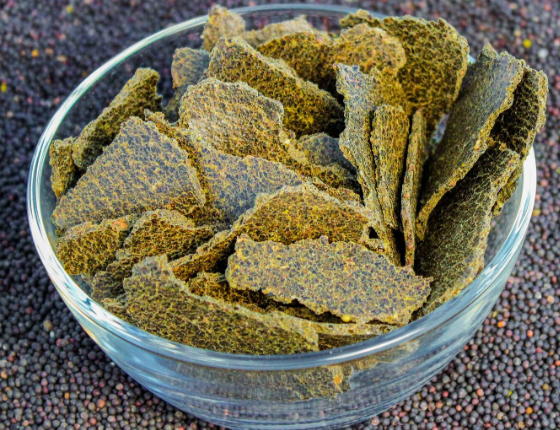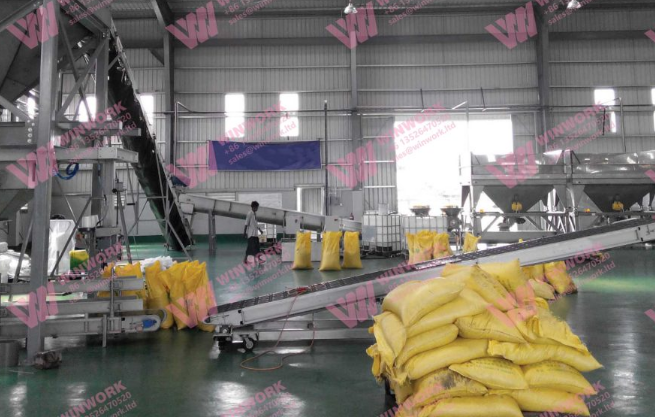NPK Fertilizer Production Line Introduction:
NPK Fertilizer Production Line is a system of equipment used to produce NPK Fertilizer.
NPK stands for Nitrogen, Phosphorus and Potassium, which are the main nutrients necessary for plant growth. the NPK Fertilizer Production Line is capable of mixing and pelletizing these three elements in a certain ratio to produce a high quality NPK fertilizer that is easy to store.

Main components of NPK fertilizer production line
1、Raw material storage and processing system
Including storage silo, conveying equipment (such as belt conveyor, screw conveyor, etc.) for storing and conveying raw materials.
2、Batching system
Adopting automatic batching equipment to ensure that the raw materials such as nitrogen, phosphorus and potassium are mixed accurately according to the predetermined proportion. The batching system usually includes weighing scales, batching hoppers, etc., which can be monitored and adjusted at any time, with an accuracy rate of 98%.
3、Crushing system
After the proportion of raw materials, if not powder, it is necessary to go through the pulverizer processing, to achieve further processing of fineness (usually 100-200 mesh), usually use the pulverizer has a vertical pulverizer, hammer mill, cage pulverizer and so on.
4, mixing system
After the completion of the crushed raw materials into the mixer, commonly used mixing equipment such as double-axis mixer, horizontal mixer, etc., through the high-speed rotation of the mixing shaft, the raw materials will be fully mixed, evenly distributed, but also able to break up the lumps of raw materials.
5、Pelletizing system
Mixed materials through the granulation equipment for granulation, common granulation equipment are drum granulator, roller granulator and disc granulator.
6、Drying and cooling system (optional)
If the use of roll granulator for dry extrusion granulation, the particles obtained by the moisture accounted for a relatively low, no need to dry.
If using wet granulation, the newly generated particles usually contain a certain amount of moisture, and need to be dried by drying equipment (such as rotary dryer) to reduce the moisture content and improve product quality. After drying, the temperature of the granules is high, and they need to be cooled by cooling equipment (e.g. rotary cooler), so that the temperature of the granules is close to the room temperature, which is convenient for storage and transportation.
7、Screening system
The cooled particles are of different sizes, which are sieved by sieving equipment to separate the unqualified particles (too big or too small), and the qualified particles go to the next process.
8、Coating system
In order to improve the storage stability of fertilizers and the use of the effect, the particles can be coated. The coating equipment usually adopts rotary drum coating machine, which is equipped with coating liquid storage tank and pump, and can work continuously.
9、Packaging system
Qualified finished granules are packed through packaging equipment, common packaging equipment include automatic quantitative packaging machine, woven bag packaging machine and so on.

Specifications of NPK fertilizer production line:
1.NPK fertilizer production line capacity
Small production line: 1-5 tons/hour
Medium-sized production line: 5-20 tons/hour
Large production line: 20-50 tons/hour and above
2. Equipment composition
Raw material pretreatment system: pulverizer (vertical pulverizer, hammer mill, etc.), dynamic batching scale, shovel feeder.
Mixing system: mixer (such as double shaft mixer, disk mixer).
Pelletizing system: disk pelletizer, drum pelletizer, roller pelletizer, etc.
Drying system: rotary dryer, fluidized bed dryer, etc.
Cooling system: rotary cooler, etc.
Sieving system: vibrating screening machine, rotary drum sieving machine.
Film coating system: film coating machine
Packaging system: automatic packaging machine
Auxiliary equipment: bucket lift, belt conveyor, screw conveyor, blower, cyclone dust collector, etc.
3. Power requirements
Voltage: usually 380V, 50Hz (may vary according to the region)
Power: depending on production capacity and equipment configuration, small production line is about 50-100kW, medium-sized production line is about 100-300kW, large production line may exceed 300kW.
4. Plant requirements
Area: According to the production capacity and equipment layout, small npk fertilizer production line usually need 100-500 square meters, medium-sized npk fertilizer production lines need 500-2000 square meters, large production lines need more than 2000 square meters.
Height: usually 6-10 meters










Get A Quote